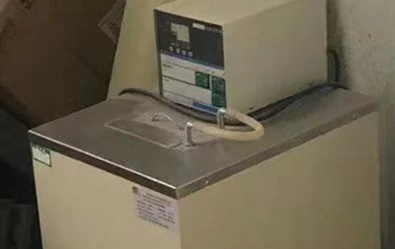loading...
- No. 9, Xingyuan South Street, Dongwaihuan Road, Zaoqiang County, Hengshui, Hebei, China
- admin@zjcomposites.com
- +86 15097380338
- Welcome to visit our website!
water softener
Understanding Water Softeners Benefits and Installation
Water softeners are essential devices designed to combat the challenges posed by hard water. Hard water contains high levels of dissolved minerals, primarily calcium and magnesium, which can lead to various issues in homes and industries. From scaled appliances to reduced efficiency in soaps and detergents, hard water can create significant inconveniences. A water softener addresses these issues by converting hard water into softer, more manageable water.
Benefits of a Water Softener
1. Improved Appliance Lifespan Hard water can cause mineral buildup in appliances such as dishwashers, washing machines, and water heaters. This buildup not only reduces the efficiency of these appliances but also shortens their lifespan. By using a water softener, homeowners can protect their investments and ensure that their appliances operate optimally for years to come.
2. Enhanced Cleaning Efficiency Soft water significantly improves the effectiveness of soaps and detergents. With softer water, consumers can use less soap while achieving the same, if not better, cleaning results. This is particularly beneficial for laundry, where fabric softeners work more efficiently in soft water, leaving clothes cleaner and softer.
3. Smoother Skin and Hair People often find that hard water can leave skin feeling dry and hair looking dull and lifeless. Water softeners help alleviate these issues by reducing mineral content in the water, resulting in a gentler bathing experience. Soft water can lead to softer, healthier skin and shinier, more manageable hair.
4. Reduced Staining and Scaling Hard water can lead to unsightly stains on sinks, tubs, and toilets, as well as mineral deposits on fixtures and faucets. A water softener can prevent these stains from forming, making it easier to maintain a clean and attractive home.
5. Environmental Benefits By maximizing the efficiency of soaps and detergents, water softeners can minimize environmental impact, reducing the amount of chemicals released into wastewater systems. This is a step towards more sustainable living practices.
Types of Water Softeners
water softener

There are several types of water softeners available on the market
- Ion Exchange Softeners These are the most common types, using a process to exchange calcium and magnesium ions in the water with sodium or potassium ions.
- Salt-free Softeners These systems alter the structure of hard minerals so that they do not adhere to surfaces. They do not remove the minerals but can reduce scaling.
- Reverse Osmosis Systems While primarily used for drinking water purification, these systems can also soften water as part of their filtration process.
Installation Considerations
Installing a water softener may seem daunting, but it is a straightforward process that can be handled by a professional plumber. Many homeowners opt for self-installation, which can save on costs. It typically involves connecting the unit to the main water supply and setting up a drainage line for the brine.
Several factors should be taken into account when selecting and installing a water softener, including the hardness level of the water, the size of the household, and budget constraints. Conducting a water test before purchase can help in determining the right system to meet specific needs.
Conclusion
In summary, water softeners provide invaluable benefits by treating hard water and enhancing the quality of water used in daily life. From improving appliance efficiency to promoting healthier skin and hair, investing in a water softener can lead to a more comfortable and manageable home environment. The initial investment in these systems often pays off in long-term savings and improved quality of life.
-
The Rise of FRP Profiles: Strong, Lightweight, and Built to LastNewsJul.14,2025
-
SMC Panel Tanks: A Modern Water Storage Solution for All EnvironmentsNewsJul.14,2025
-
GRP Grating: A Modern Solution for Safe and Durable Access SystemsNewsJul.14,2025
-
Galvanized Steel Water Tanks: Durable, Reliable, and Ready for UseNewsJul.14,2025
-
FRP Mini Mesh Grating: The Safer, Smarter Flooring SolutionNewsJul.14,2025
-
Exploring FRP Vessels: Durable Solutions for Modern Fluid HandlingNewsJul.14,2025
-
GRP Structures: The Future of Lightweight, High-Performance EngineeringNewsJun.20,2025
